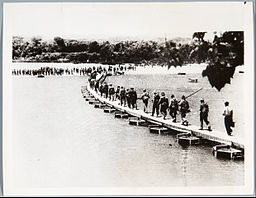About the book
So, you think that World War 2 began in 1939?
Then you’re evidently not familiar with the Spanish Civil War.
The
war was Spain’s Great War. The country suffered death, destruction, and
repression on an unprecedented scale. There were large-scale military
battles that left tens of thousands dead. The world witnessed some of
the largest air battles that it had ever seen. People from all parts of
society, from labor unionists to priests, were heartlessly murdered.
Extremists and radical groups saw an exponential rise in their size and
influence.
But, it was not just Spain that experienced its Civil
War. The Spanish Civil War was also Europe’s and the world’s war. There
was significant international involvement and interest in the war from
the start, and it was a microcosm of the far greater war that was to
follow it. It involved battles between democracy and dictatorship,
Fascism and Communism, Germany and the USSR. The Great Powers of Europe
tested out military strategies and new technologies, while tens of
thousands of idealistic foreigners joined the war to battle against
Fascism. At the same time, the great democracies of Britain and France
played a more muddled role.
This introduction to the Spanish
Civil War is the second book from George Levrier-Jones. The book
considers the brutal war that arose between the political left and right
in Spain over the years 1936-1939.
The topics in the book include:
• 19th Century Spain and the path that led to the Spanish Second Republic
• The chronic instability and changes of the Spanish Second Republic
• The major differences between the two sides
• How the 1936 election led to the Spanish Civil War breaking out
• International involvement and the instability of 1930s Europe
• Why the Great Powers of Europe intervened in the war
• The early Nationalist advances in the war
• How General Francisco Franco consolidated the Nationalist side
• The civil war within the Spanish Civil War
• The great Republican counter-attacks and General Franco’s responses
• Events across Spain from Madrid to the Basque Country, and Barcelona to Valencia
• The closing stages of the war
• What the victors did in the years and decades after winning the war














